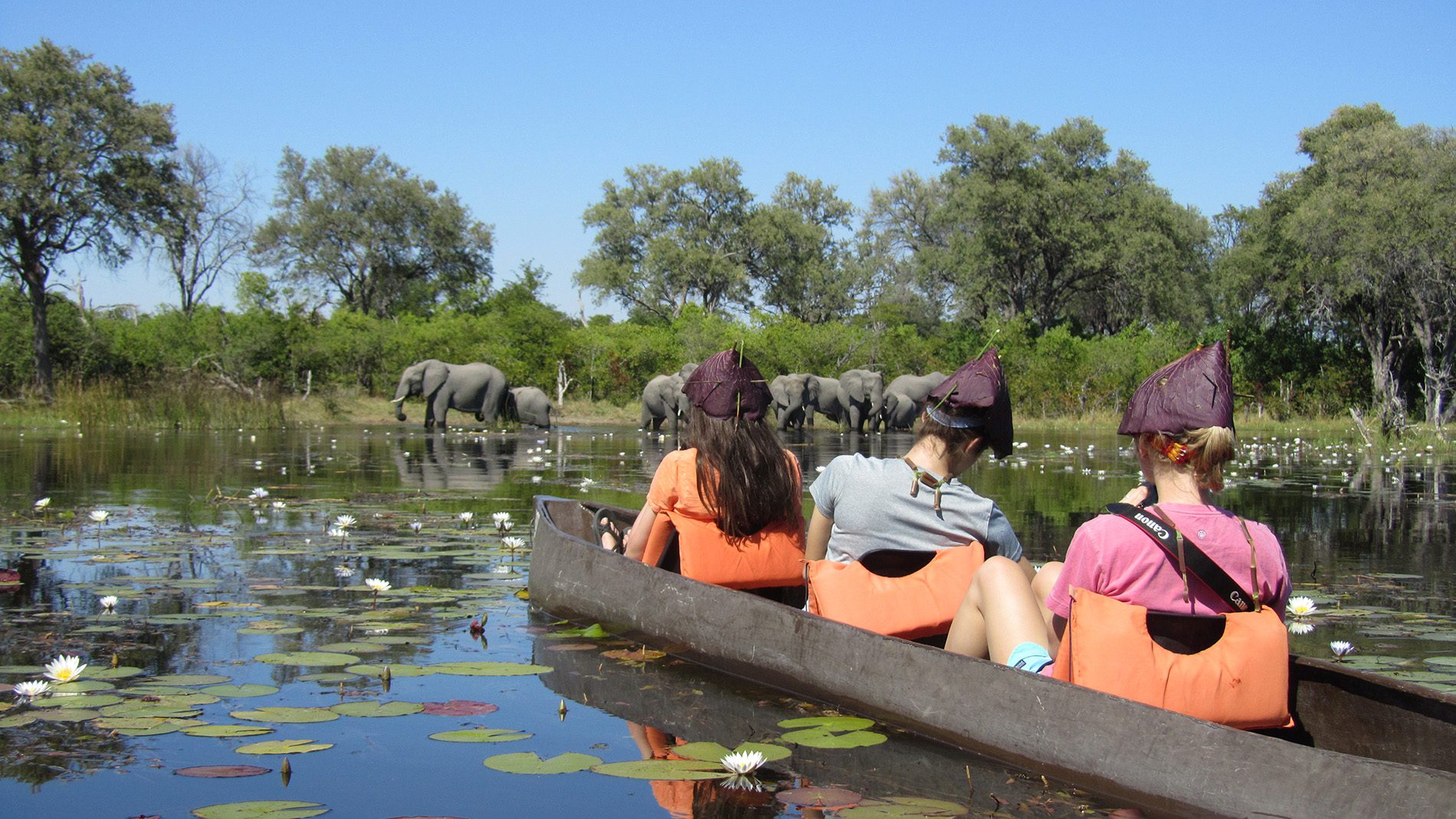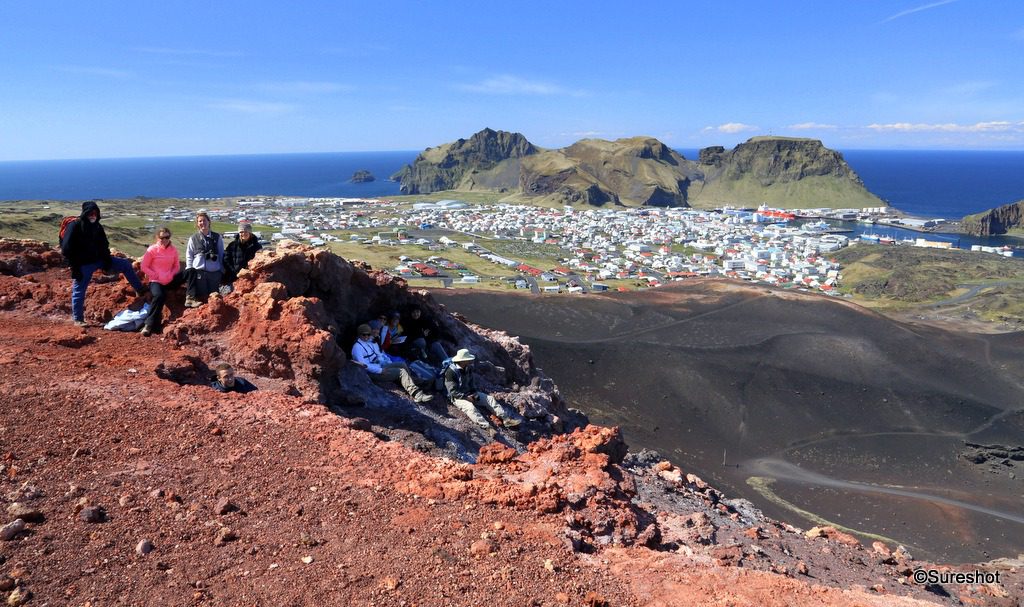May X students explore the world on the fast-track

Kristy Maher gets her students out of the classroom every chance she gets. Sometimes, that means a simple trip across town. But for May X, it means a trip to Africa.
“I just don’t think you can really teach without being in the real world,” said Maher, a professor of sociology at Furman University.
The May Experience—May X—began in 2009 as part of a major overhaul of the University’s academic calendar and curriculum. Courses run for about three weeks and offer students real-life learning experiences, many of which involve travel abroad.
The experiment “has been an overwhelming success in a way that we didn’t expect,” said Brad Barron, the University’s registrar. He considers the participation rate —roughly 30 percent of the study body—a ringing endorsement for the optional classes.
Maher is leading her third group on a trip she calls Botswana Paradox. The country has one of the highest rates of HIV/AIDS in the world. But its government generally follows what the global health community has determined are best practices in treating and preventing infection.
She asks her students to consider why those practices aren’t working as they visit numerous governmental and aid agencies in the city as well as villages and remote clinics. Maher said it’s one thing to sit in a classroom and explain the difficulties of rural healthcare, but it’s another to see it.
“When we’re driving for eight hours from point A to point B and there’s really nothing . . . it becomes much more of a reality,” she said.
The May X courses are developed on campus and approved by a committee. Barron said faculty are generally enthusiastic about coming up with new ideas for the program.
“It’s being able to teach your passion in a way that the students are really going to engage,” he said.
This year will be Suresh Muthukrishnan’s third time accompanying students to Iceland. He developed the course in 2010 as a way to bring science to life. An island with both active volcanoes and enormous glaciers offered the perfect living classroom.

May X students in Iceland
“Iceland is like a paradise,” said Muthukrishnan, an associate professor in earth and environmental sciences. “It’s geologically a very important place and is also significant from a sustainability science perspective.”
Mitchell Freyermuth ’18 said the course is the perfect fit for him as an earth and environmental sciences major.
“It’s a place where a lot of the stuff I’ve been studying is actually happening,” Freyermuth said.
This won’t be his first May X, although it will be his first abroad. Last year Freyermuth explored geology and astronomy in the southwestern United States. That course gave him a plan heading into this year’s trip: “You’ve got to try to experience everything you can while getting a good grade,” he said. “They really do teach you a lot in such a short amount of time.”
For some students—Freyermuth is one of them—class schedules just don’t allow for a full semester abroad, and May X fills that gap in their experiences. Others are wondering if they’re actually up for a full semester in another country.
“This gives a quick taste of what the longer travel study experience can do,” Barron said.
Travel brings with it the usual uncontrolled variables—everything from food and transportation to electricity and WiFi.
English professor Nick Radel worked with colleagues to develop a travel writing course that studied in Italy last May. This year, the course will be held in Cuba. In Italy, students were required to electronically submit their work to each other for feedback. That may or may not be possible this time around.
“We may be doing something very old-fashioned,” Radel said. “Writing in notebooks and reading to each other.”
While the May X locales often are spots that draw tourists, these trips are not primarily about sightseeing. But the academic component may not look like what students are used to during the regular semester.
Muthukrishnan requires daily readings and conducts what he calls “conversational lectures” as they go.
The Botswana trip starts with a few days on campus, laying the foundation for what students are about to experience.
“It’s really important to get them intellectually prepared for where we’re going,” Maher said.
Her students also are paired to research the various organizations the group will visit in Africa. While in Botswana, the pairs will present what they’ve learned about each group’s work. There’s no digital media to assist.
“We’re literally around the fire with head lamps on for these presentations,” Maher said.
The group to Cuba went a step further. Students were required to take a full-semester course this spring, as a prerequisite to the May X course. Radel said the team leaders wanted to allow time to read and evaluate travel writing as well as develop a better understanding of Cuban history and culture, especially in terms of its relationship with the United States.
Travel writing will function as the tool to help the students learn much more than how to write. Radel hopes they’ll learn to be cultural analysts, not just literary analysts, and “let that other culture enable them to understand themselves better.”
No traditional classroom can quite match up in that respect.
“No matter how many videos and pictures we show to explain things, there’s nothing like being there,” Muthukrishnan said.
Learn more about Furman’s May Experience and Study Away programs, view Kristina Benson’s ’17 video from Iceland, or check out Grace Ellen Hanna’s ’19 blog from Botswana.